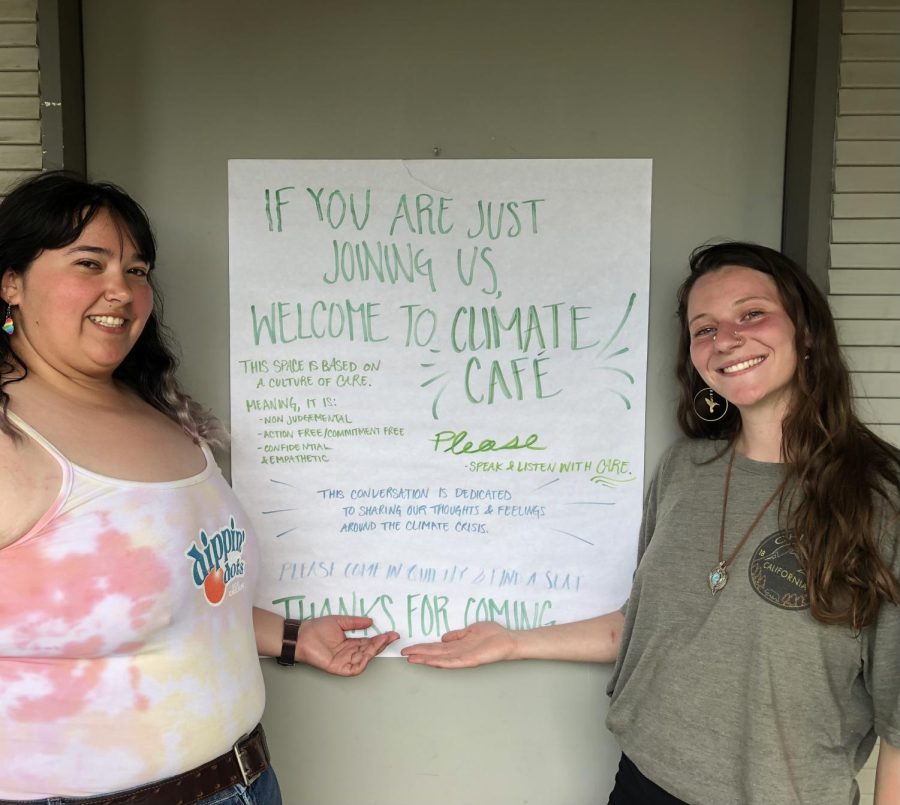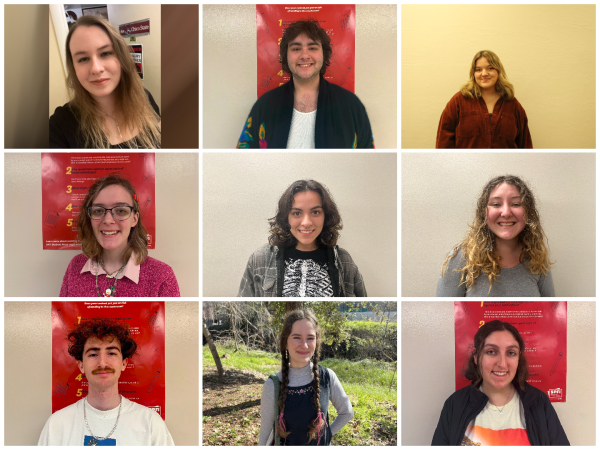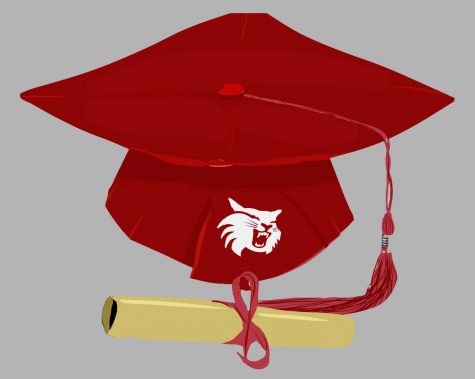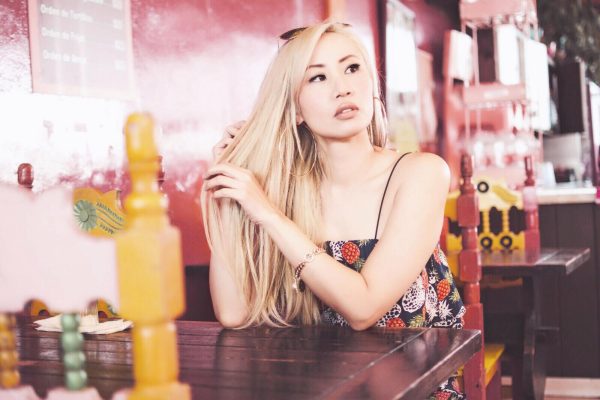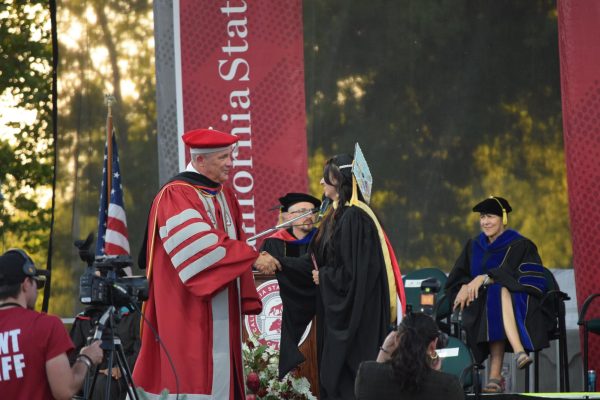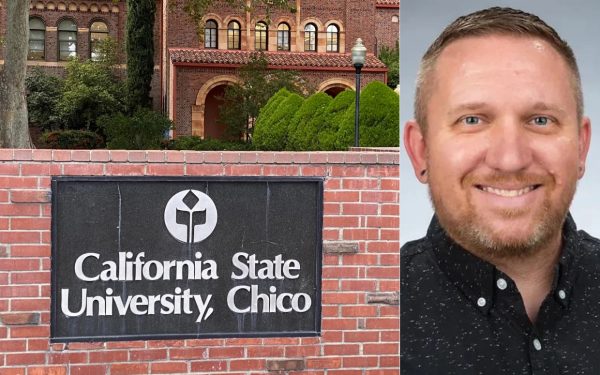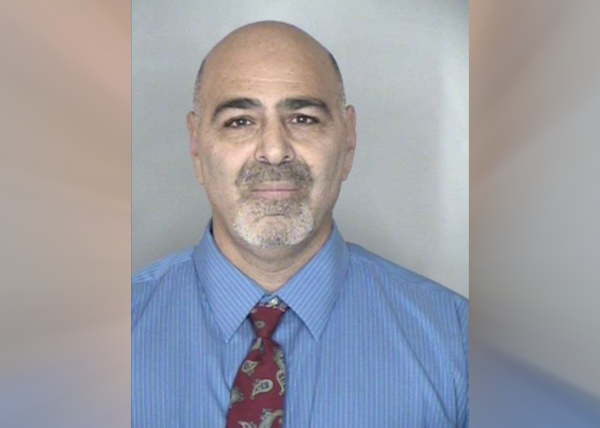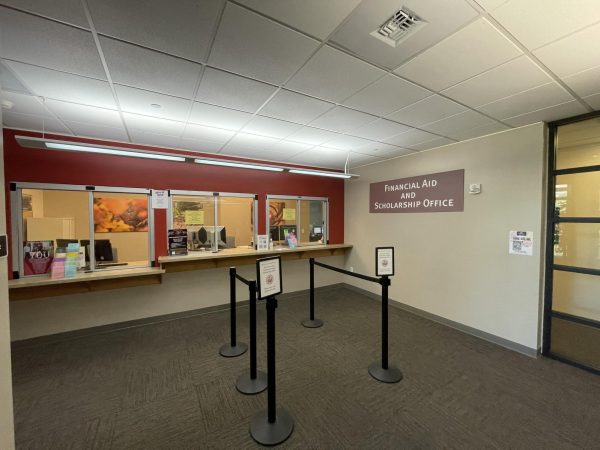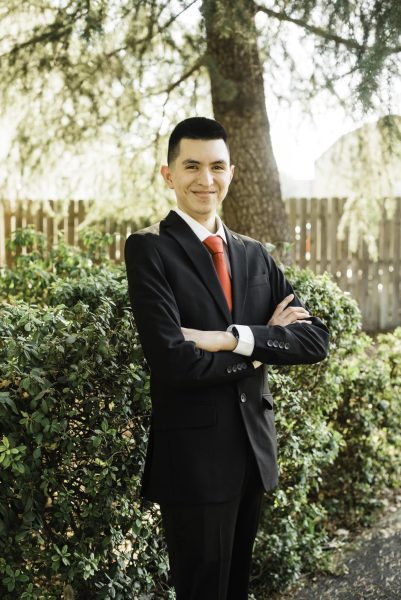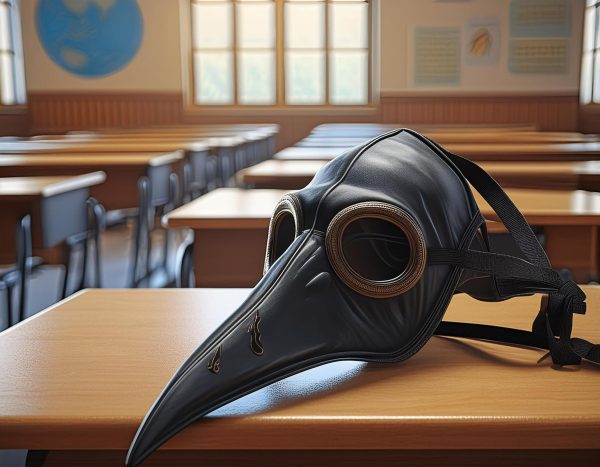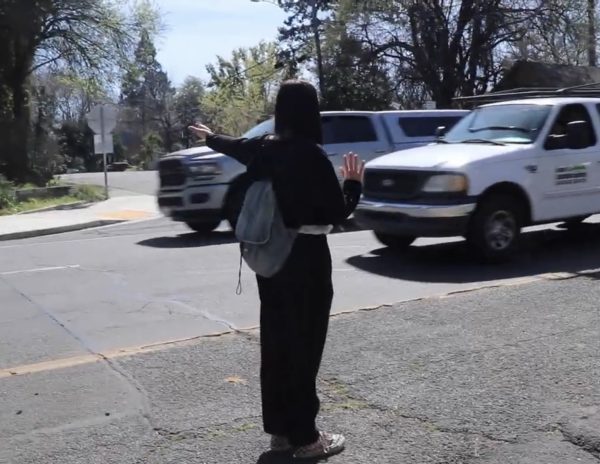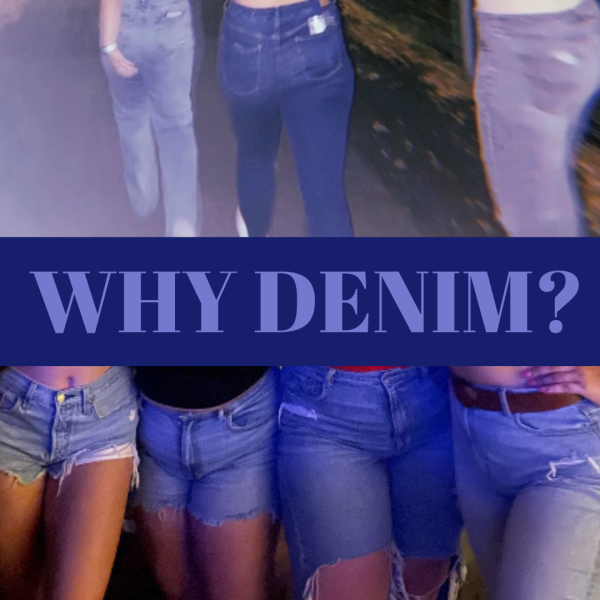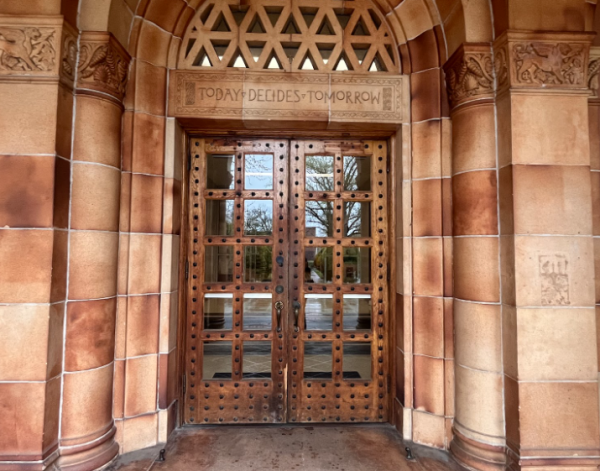Climate Change: It’s OK to cry about It
Kim Michl-Green and Chelsea Barron in front of the South Chico Community Assistance Center. Photo taken by Mark Stemen.
If you haven’t yet heard, the earth is in ecological collapse. Fires are rampant, natural disasters are on the news every day and wildlife biodiversity has plummeted. Scientists call this the sixth mass extinction.
Scared?
Well you’re not alone.
Kim Michl-Green, a recent Chico State graduate, created a safe space to express fears about the changing climate. With her long hair, combat boots and reusable water bottle in tow, Michl-Green is a quintessential hippie environmentalist.
On the first Wednesday of every month meetings, called Climate Cafés, take place at the South Chico Community Assistance Center. There, attendees enjoy snacks and drinks while informally sharing their thoughts and fears about climate change.
Michl-Green, 25, started facilitating these meetings in 2022. Her small dog, Nina, rides in Michl-Green’s backpack as she bikes to the Climate Café. There, Nina comforts attendees during the emotional discussions.
Michl-Green grew up in Oroville, moved to northern Minnesota and at age 17 she returned to California to attend Butte College for two years.
But she wasn’t yet passionate about her education and took two years off school to travel. During this time, Michl-Green moved to Brazil. This was where her interest in environmentalism grew.
There was striking biodiversity, Michl-Green said. But it also juxtaposed against the urbanness of Sao Paulo, Brazil. She grieved the “loss of the oasis” and began thinking deeply about climate change and environmental destruction.
“On a fundamental level, the reason we are in this predicament is the human behaviors people engage with,” Michl-Green said. “Tapping into people’s feelings about climate change is a path forward.”
Michl-Green considered studying biology or environmental science, but realized everything ultimately came down to psychology. She finished her degree in psychology at Chico State in 2022, where she met Dr. Mark Stemen.
Stemen is an environmental historian. He’s been teaching at Chico State for 20 years in the Department of Geography. Various geography, anthropology and philosophy books frequent the table at the front of his classroom for students to explore.
Last year, Stemen realized that his class GEOG 304: Sustainability and Climate Change had a pessimistic focus on environmental problems rather than solutions. He restructured his curriculum for 2023 and now begins every class with a news story of an environmental solution.
In general, people don’t realize how many solutions there are, Stemen said.
Stemen met Michl-Green when she took his Sustainability and Climate Change course in 2022. He recognized Michl-Green’s interest in psychology and introduced her to a newsletter called Gen Dread by Britt Wray.
Wray is an author and researcher who recently published the book “Generation Dread: Finding Purpose in an Age of Climate Crisis.”
“I gave her a copy of the book and said we should do something about this,” Stemen said.
Shortly after, Michl-Green got certified to facilitate group climate discussions through the Climate Psychology Alliance. With Stemen’s help, she began the Climate Café as a safe space for people to feel emotions and connect with others.
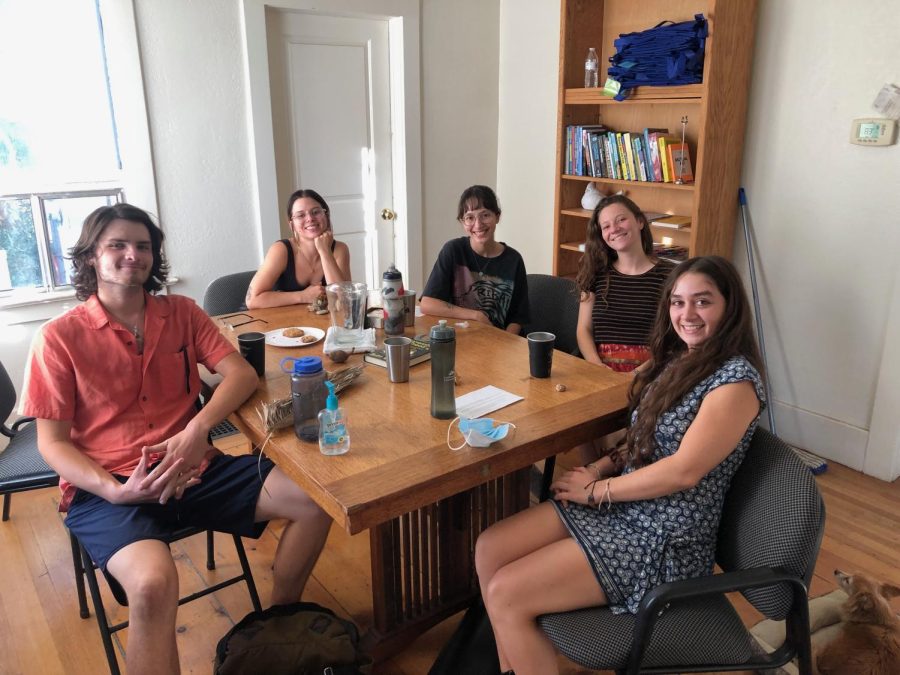
Looking at climate change alone is unbearable, Michl-Green said. You will turn away.
Without fear of judgment or critique, Michl-Green has created a safe space for people to open up. She starts the group by sharing her own anxieties and she never puts herself above the group, Stemen said.
“Kim has refined an ability to be nonreactive,” Stemen said. “She creates a space where people can say what they really feel.”
The audience usually ranges from about 5-20 people, Stemen said. And the participants are primarily Chico and Oroville youth, though Michl-Green has plans to eventually expand the climate cafés.
“The next phase is what bridges the gap between the two worlds I am involved with,” Michl-Green said. “Climate Cafés are just a space for people to talk about thoughts and feelings. They are action-free.”
Dr. Randy Larsen, a professor in the Department of Philosophy, met Michl-Green at one of the climate cafés. His office door is scattered with nature stickers like “animals are friends, not food” and other nature-related slogans.
Larsen is an expert in environmental ethics and has a master’s in communication and philosophy. Although he sees himself as more of a mentor now, he relates to Michl-Green’s angst about climate change and environmental issues.
“In environmentalism every victory is temporary and every loss is permanent,” Larsen said.
Larsen’s experience at the climate café made him feel connected to others. It’s a place where people can be vulnerable and feel each other’s feelings, Larsen said.
Modern environmentalism is becoming anthropocentric, Larsen said. It’s no longer just about protecting wild spaces. Now it’s about people and about crisis management.
“To understand the ecosystem you have to understand the ego-system,” Larsen said.
This is precisely what Michl-Green’s work focuses on.
“We need to hone in on people’s feelings and emotions surrounding these issues so they can be reengaged with the world from a place of wellbeing, not a place of apathy,” Michl-Green said.
Michl-Green hopes to expand the café into workshops and courses to transition from strictly discussing feelings to engaging with the world. After the emotional work is done, people are able to act from a place of awareness and a place of community and empowerment, Michl-Green said.
She envisions creating online platforms and courses like those at The Great Turning, a center for ecoliteracy run by women facilitators.
“They do the work I want to do,” Michl-Green said. “They’re huge sources of inspiration.”
But for now, focusing on Chico works for Michl-Green.
“Being involved in local issues feels really good for me because I can see the immediate impacts of my work,” Michl-Green said. “I’m happy to be here for a while, but I don’t know what my plans are exactly.”
Michl-Green described the complexities of the climate crisis with eloquence and clarity. With her voice raised and hands gesturing boldly, her passion for environmentalism is palpable.
But progress is slow. Channeling feelings of frustration and outrage in a positive way is the challenge, Larsen said.
Luckily, Michl-Green has mastered this skill.
“Kim represents a type of tenacity,” Larsen said.
Oftentimes climate news and media employs fear in hopes to scare people into action, but that tactic often creates feelings of hopelessness that keep people from making a change.
“Burned out people can’t help a burning planet,” Stemen said.
Michl-Green echoed this sentiment. Provoking fear will not encourage people to change their ways. Rather, when people are allowed to express and work through their fears, they can contribute to the movement.
“A better motivator is not to fall victim to the narrative for closure and actually stay open to possibilities,” Michl-Green said. “The truth is we don’t know what will happen. We could have a revolution.”
Holland Kanne can be reached at [email protected].








